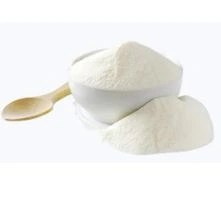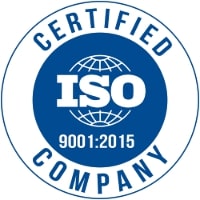BIS Certification for Milk Powder –IS 1165

Product Description
Milk
powder is a dehydrated dairy product produced by evaporating moisture from
milk, making it convenient for storage and transportation. It retains most of
the nutritional properties of fresh milk, such as proteins, vitamins, and
minerals. BIS certification under IS 1165 ensures that milk powder products
meet stringent quality standards, providing consumers with safe, nutritious,
and high-quality products. This certification guarantees that milk powder
complies with essential criteria such as microbiological safety, nutritional
composition, and proper packaging.
Introduction
Under the
Bureau of Indian Standards (BIS), milk powder is required to meet mandatory
certification as per IS 1165. This standard defines the parameters for milk
powder production, quality control, and packaging, ensuring that the product is
safe, nutritious, and fit for human consumption. Manufacturers must obtain BIS
certification, represented by the ISI mark, before marketing their milk powder
products in India. This ensures that the products meet the national standards
for dairy food products, providing confidence in their quality and safety.
Why is BIS Certification Necessary for Milk Powder?
BIS certification for milk powder is crucial for consumer safety and trust. The certification ensures that the product is free from contaminants such as harmful bacteria, heavy metals, and other impurities. It also verifies that the milk powder contains the correct nutritional profile, including essential vitamins, proteins, and minerals necessary for human health. BIS certification guarantees that consumers are getting a safe and high-quality product that meets both nutritional and safety standards.
Overview of Indian Standard IS 1165
Indian Standard IS 1165 outlines the safety,
quality, and nutritional requirements for milk powder. It defines essential
nutrient levels, including proteins, fats, carbohydrates, vitamins, and
minerals, ensuring the milk powder provides adequate nutrition. The standard
also specifies acceptable limits for microbial contamination, ensuring the
product is free from harmful bacteria or pathogens. It establishes guidelines
for proper packaging to prevent contamination and mandates clear labeling with
nutritional content, expiration dates, and preparation instructions.
Additionally, IS 1165 outlines permissible additives and preservatives to
ensure they are safe for consumption and do not compromise the quality of the
milk powder.
Process
for BIS Certification
The BIS
certification process for milk powder under IS 1165 includes several steps to
ensure compliance with national standards:
- Application Submission: Manufacturers submit the
application form along with necessary documentation, including product
specifications and quality control measures.
- Document Review: BIS reviews the
documentation to confirm that the milk powder meets IS 1165 standards for
safety, nutrition, and quality.
- Factory Inspection: BIS officials inspect the
manufacturing facility to verify that production processes align with the
required quality standards and safety protocols.
- Sample Testing: Samples of milk powder are
tested in BIS-approved laboratories to assess compliance with
microbiological and nutritional requirements.
- Certification Grant: Upon successful testing and
inspection, BIS grants certification, allowing the manufacturer to display
the ISI mark on their milk powder products.
Documents Required for BIS Certification
To apply
for BIS certification for milk powder, manufacturers need to provide the
following documentation:
- Application form
- Product specifications and
nutritional analysis
- Manufacturing and quality
control process documentation
- Test reports from
BIS-approved laboratories
- Factory layout and equipment
details
- Proof of business
registration
- Declaration of conformity to
IS 1165 standards
These documents ensure that the milk powder adheres to the required safety, quality, and nutritional standards.
BIS ISI Mark Certification Costing And Timeline
To Know The Process in Detail, Please Visit:
- BIS ISI Mark Certification for Domestic Manufactures
- BIS ISI Mark Certification for Foreign Manufactures
Under BIS Registration Products ISI and CRS
Conclusion
BIS
certification for milk powder under IS 1165 ensures that the product is safe,
nutritious, and suitable for human consumption. It provides consumers with
confidence in the quality and safety of the milk powder they use. Manufacturers
who obtain BIS certification demonstrate their commitment to meeting the
highest standards of quality and safety. EVTL India offers expert consultancy
services to help manufacturers navigate the BIS certification process
efficiently, ensuring their milk powder products meet the required standards
for market readiness.























